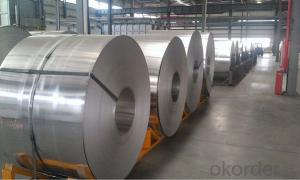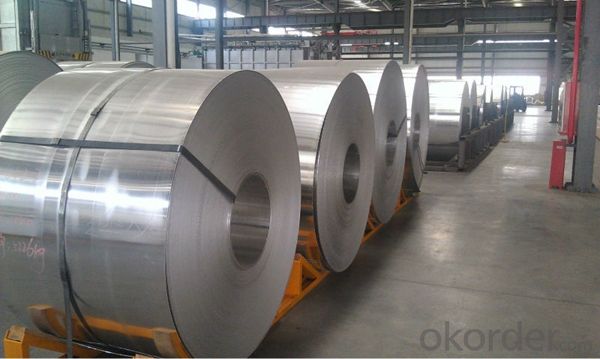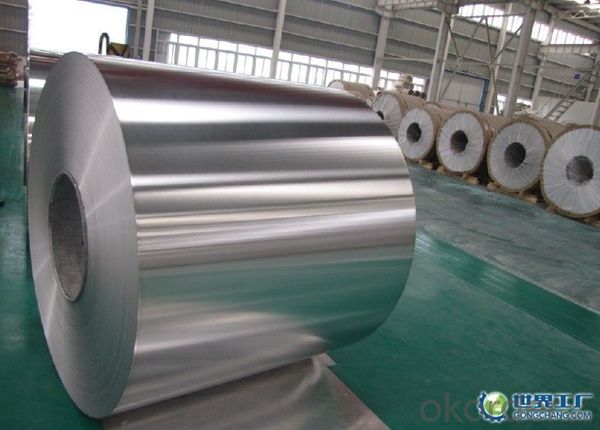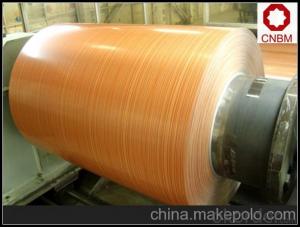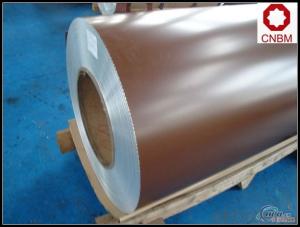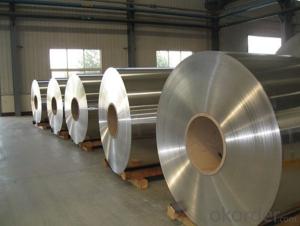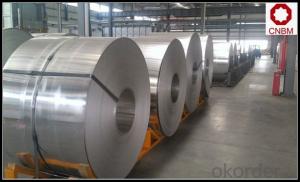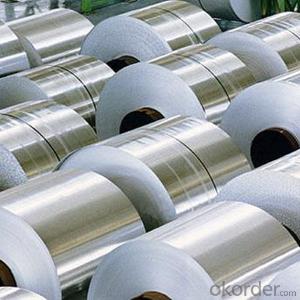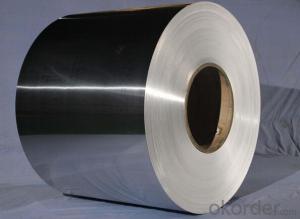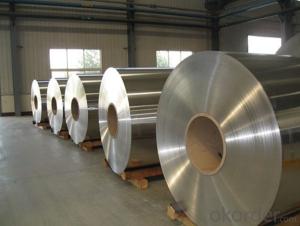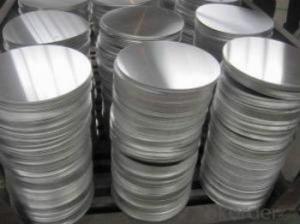Mill Finish Aluminum Coil 3003 H22 China Factory Direct Supply in Pensacola
- Loading Port:
- Shanghai
- Payment Terms:
- TT OR LC
- Min Order Qty:
- 5 m.t.
- Supply Capability:
- 1000 m.t./month
OKorder Service Pledge
OKorder Financial Service
You Might Also Like
Specification
1. Specification of Mill Finish Aluminum 3003 H22 China Factory Direct Supply
Alloy Number | AA5XXX |
Temper | H12, H14, H16, H18, H22, H24, H26, H32, HO, F |
Thickness | 0.1mm – 500mm |
Width | 10mm- 2200mm |
Standard | GB/T3880-2006, ASTM, ISO, EU standard |
2. Application of Mill Finish Aluminum 3003 H22 China Factory Direct Supply
(1).Interior: wall cladding, ceilings, bathrooms, kitchens and balconies, shutters, doors...
(2).Exterior: wall cladding, facades, roofing, canopies, tunnels,column covers , renovations...
(3).Advertisement: display platforms, signboards, fascia, shop fronts...
3. Feature of Mill Finish Aluminum 3003 H22 China Factory Direct Supply
Surfact Quality :
Be free from Oil Stain, Dent, Inclusion, Scratches, Stain, Oxide Dicoloration, Breaks, Corrosion, Roll Marks, Dirt Streaks and other defect which will interfere with use,
Mechenical Property:
Chemical Composite and Mechanical Property
4. Certificate:
SGS and ROHS(if client request, paid by client), MTC(plant provided), Certificate of Origin(FORM A, FORM E, CO), Bureau Veritas and SGS (if client request, paid by client), CIQS certificate
5. Image of Mill Finish Aluminum 3003 H22 China Factory Direct Supply
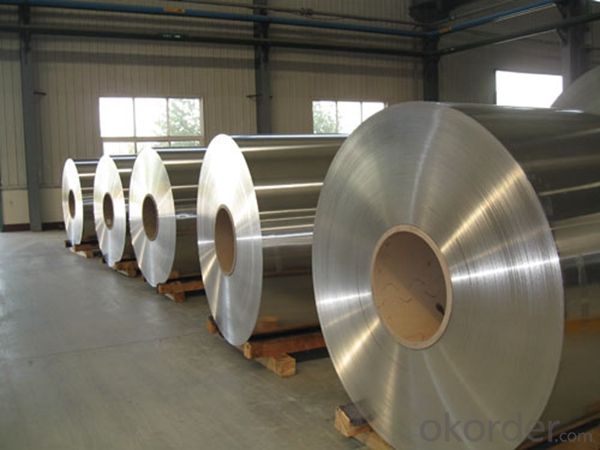
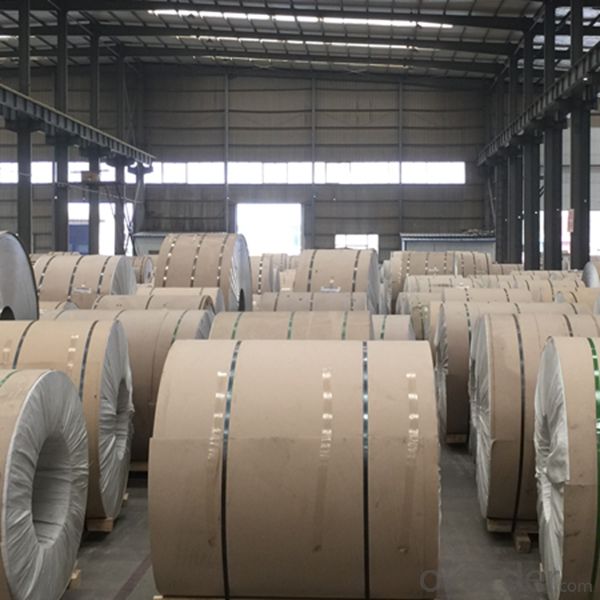
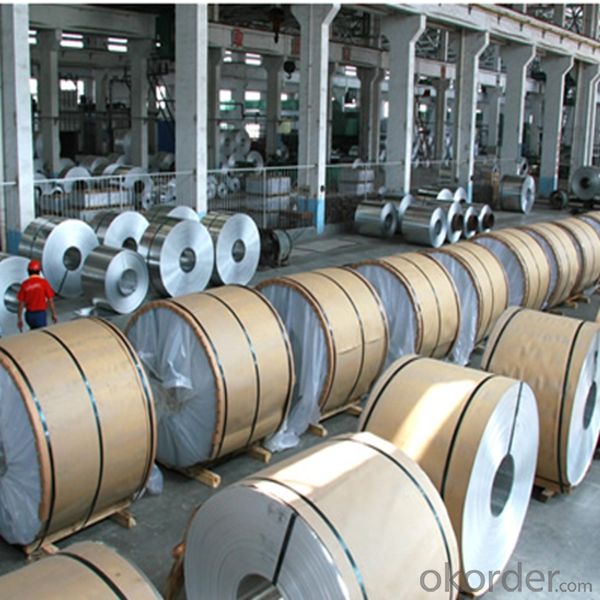
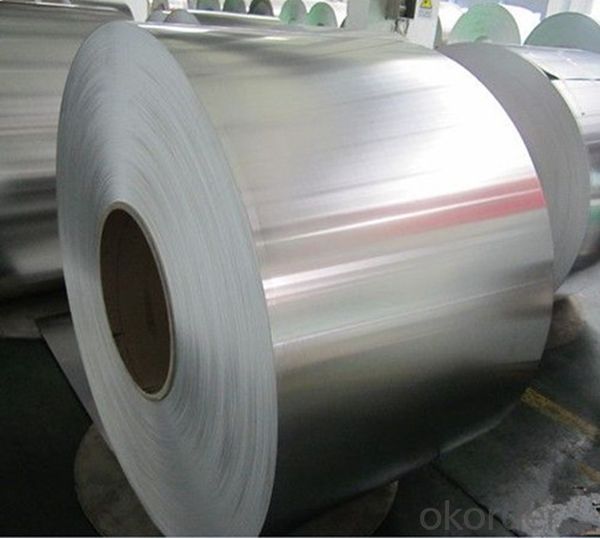
6. Package and shipping of Mill Finish Aluminum 3003 H22 China Factory Direct Supply
First, plastic cloth with drying agent inside; Second, Pearl Wool ; Third, wooden cases with dry agent , fumigation wooden pallets, aluminum surface could cover blue PVC film
7. FAQ
1) What is the delivery time?
Dpends on actual order, around 20 to 35 days
2)What is the QC system:
We have QC staff of 20 persons and advanced equipment, each production is with MTC traced from Aluminum ingot lot.
3) What market do you mainly sell to?
Australia, America, Asia, Middle East, Western Europe, Africa etc
- Q: What do the two items (COIL:873347 HEAT: number) on the label of the raw material of aluminum coil stand for?
- COIL means aluminum coil and HEAT means heating, so together they mean hot rolled coil.
- Q: Are aluminum coils suitable for manufacturing cookware?
- Aluminum coils, indeed, prove to be appropriate for the production of cookware. The reason behind aluminum's popularity in cookware lies in its exceptional heat conductivity, which results in uniform heating and efficient cooking. Moreover, its lightweight and sturdy nature make it convenient to handle and long-lasting. Additionally, aluminum possesses resistance against rust and corrosion, making it the perfect choice for cookware frequently exposed to water and heat. Nevertheless, it is crucial to acknowledge that uncoated aluminum cookware might react with certain acidic or alkaline foods, leading to a metallic taste. To tackle this issue, numerous aluminum cookware manufacturers utilize non-stick coatings or anodized finishes to prevent food reactions and enhance the cookware's durability. All in all, aluminum coils serve as a suitable material for the manufacture of cookware, but it is imperative to consider the specific requirements and coatings necessary for various types of cookware to ensure safety and optimal performance.
- Q: Are aluminum coils resistant to abrasion?
- Yes, aluminum coils are generally resistant to abrasion. Aluminum is known for its durability and ability to withstand wear and tear. It has a high strength-to-weight ratio and excellent corrosion resistance properties, making it suitable for various applications where abrasion resistance is required. Additionally, aluminum coils are often coated or treated with protective finishes, further enhancing their resistance to abrasion. However, the specific level of resistance may vary depending on the specific alloy and the surface treatment applied to the coils.
- Q: This question asks for a comparison between cold rolling and hot rolling processes, specifically in the context of steel wire production for coilings.
- <p>Cold rolling and hot rolling are two distinct processes used in the manufacturing of steel wires for coilings. Hot rolling is performed at high temperatures, typically above the recrystallization temperature of the steel, which allows the material to be shaped more easily. This process results in a more ductile and less hard steel, which can be beneficial for certain applications. However, hot-rolled steel may have a rougher surface and may require further processing to achieve desired dimensions and surface finish. Cold rolling, on the other hand, is done at room temperature, which imparts a harder and smoother surface to the steel. It is more precise and results in tighter tolerances, making it suitable for applications requiring high strength and precision. Cold-rolled steel also has better surface finish and dimensional accuracy compared to hot-rolled steel. However, cold rolling is more energy-intensive and may not be suitable for very thick materials due to the increased hardness of the steel at room temperature.</p>
- Q: What are the different mechanical properties of aluminum coils?
- Aluminum coils are highly sought after for a variety of uses due to their diverse mechanical properties. Some key properties of aluminum coils include: 1. Strong: Aluminum coils are impressively strong, making them suitable for structural purposes. Their strength can be further enhanced through alloying or heat treatment processes. 2. Flexible: Aluminum coils are highly malleable, allowing for easy shaping and forming. This property enables the creation of intricate designs and complex shapes without compromising the integrity of the material. 3. Lightweight: Aluminum is known for its low density, making it one of the lightest metals available. This characteristic makes aluminum coils ideal for industries like aerospace and automotive, where weight reduction is crucial. 4. Resistant to corrosion: Aluminum naturally resists corrosion, forming a protective oxide layer that prevents further oxidation. This quality makes aluminum coils suitable for outdoor and marine environments, as they can withstand harsh conditions and require minimal maintenance. 5. Good conductivity: Aluminum is an excellent conductor of both heat and electricity. This characteristic makes aluminum coils ideal for applications that require efficient heat transfer, such as in heat exchangers and electrical wiring. 6. Easy to machine: Aluminum coils can be easily machined due to their low melting point and the way they form chips. This characteristic allows for high-speed machining operations, resulting in reduced production time and costs. 7. Weldable: Aluminum coils can be easily welded using various techniques, such as TIG or MIG welding. This characteristic enables the fabrication of complex structures and the joining of aluminum components. 8. Resistant to fatigue: Aluminum exhibits excellent fatigue resistance, allowing it to withstand repeated stress cycles without failure. This quality makes aluminum coils suitable for applications subjected to cyclic loading, such as automotive components or structures exposed to wind or waves. Overall, the combination of unique mechanical properties possessed by aluminum coils, including strength, flexibility, lightweight, corrosion resistance, conductivity, machinability, weldability, and fatigue resistance, makes them a versatile material choice for a wide range of industries and applications.
- Q: What are the different alloys used for aluminum coils?
- Aluminum coils utilize several different alloys, each possessing unique properties and applications. Some commonly employed alloys encompass: 1. 1100 Alloy: A pure aluminum alloy that boasts exceptional corrosion resistance and high thermal conductivity. It finds frequent usage in scenarios necessitating elevated thermal or electrical conductivity, such as heat exchangers or electrical conductors. 2. 3003 Alloy: A versatile aluminum alloy offering commendable resistance against atmospheric corrosion and moderate strength. It is commonly employed in situations requiring moderate strength and formability, like packaging, roofing, or vehicle parts. 3. 5052 Alloy: Among the strongest non-heat-treatable aluminum alloys, this alloy exhibits top-notch corrosion resistance and favorable formability. It frequently finds application in marine environments, automotive components, and household appliances. 4. 6061 Alloy: A heat-treatable aluminum alloy renowned for its exceptional strength and corrosion resistance. It is often utilized in structural capacities, such as aircraft components, marine hardware, or bicycle frames. 5. 7075 Alloy: A high-strength aluminum alloy recognized for its outstanding fatigue strength. It is commonly employed in aerospace and military scenarios, as well as in high-stress structural elements. These examples represent merely a fraction of the diverse array of alloys employed for aluminum coils. The selection of a specific alloy depends on the desired properties and intended application of the coil.
- Q: Explain the key differences between aluminum coil and steel coil, including material properties and applications.
- <p>Aluminum coil and steel coil are distinct based on their material composition and properties. Aluminum coil is made from aluminum, a lightweight metal known for its corrosion resistance, high thermal and electrical conductivity, and formability. It is commonly used in applications such as packaging, construction, and electrical components. Steel coil, on the other hand, is made from steel, a stronger and more durable metal that offers greater tensile strength and is more resistant to deformation. Steel is widely used in construction, automotive, and manufacturing due to its strength and durability. The choice between aluminum and steel coil depends on the specific requirements of the application, such as weight, strength, and cost considerations.</p>
- Q: What are the pros and cons of utilizing aluminum coils in storage applications?
- <p>Aluminum coils offer several advantages for storage, including high durability, corrosion resistance, and lightweight properties which make them easy to handle. They are also recyclable and have good thermal conductivity, which can be beneficial in temperature-controlled environments. However, there are downsides such as higher initial costs compared to some other materials and potential for denting or damage if not properly handled. Additionally, while aluminum is generally non-magnetic, it can be attracted to strong magnets, which might be a consideration in certain storage scenarios.</p>
- Q: How are aluminum coils tested for quality control?
- Aluminum coils go through numerous quality control tests to ensure their reliability and performance. One primary test is the dimensional inspection, where the coils' physical dimensions are measured and compared to the manufacturer's specifications. This helps identify any discrepancies in length, width, thickness, or diameter. Another critical test is the visual inspection, where the coils are thoroughly examined for surface defects like scratches, dents, or discoloration. This visual examination is crucial to ensuring that the coils meet the required aesthetic standards. To evaluate the mechanical properties, various mechanical tests are conducted. Tensile strength tests measure the coils' resistance to breaking under tension, determining their durability and strength. In addition, hardness tests assess the coils' resistance to indentation or deformation. The hardness values are compared to predetermined standards to verify if the coils meet the necessary criteria. Corrosion resistance testing is also conducted to assess the coils' ability to withstand corrosion over time. This test exposes the coils to harsh environments or corrosive substances, which is crucial as aluminum is often used in applications that may involve contact with corrosive elements. Electrical conductivity tests ensure the proper functioning of the coils in electrical applications. Conductivity is measured and compared to the required specifications to guarantee that the coils possess the desired electrical characteristics. Additionally, depending on the specific requirements of the aluminum coils, other tests like chemical composition analysis, surface roughness evaluation, and coating adhesion tests may also be performed. Overall, these comprehensive quality control tests enable manufacturers to ensure that aluminum coils meet necessary standards, ensuring their quality, performance, and reliability in various applications.
- Q: What are the different types of edge conditions for aluminum coils?
- There are several types of edge conditions for aluminum coils, including slit edge, mill edge, deburred edge, round edge, and beveled edge. Each type has specific characteristics and is used for different applications in industries such as construction, automotive, and aerospace.
Send your message to us
Mill Finish Aluminum Coil 3003 H22 China Factory Direct Supply in Pensacola
- Loading Port:
- Shanghai
- Payment Terms:
- TT OR LC
- Min Order Qty:
- 5 m.t.
- Supply Capability:
- 1000 m.t./month
OKorder Service Pledge
OKorder Financial Service
Similar products
Hot products
Hot Searches
Related keywords
